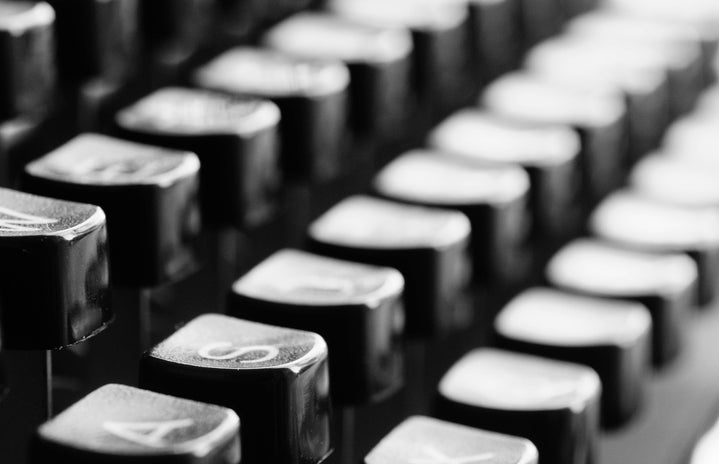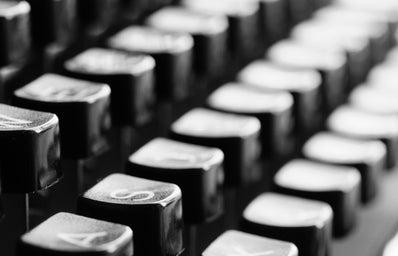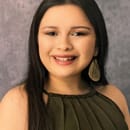This week, the last full week in September is known as Deaf Awareness Week, and Sunday will mark International Day of Deaf. The celebration first started in 1958 and has since been celebrated every year. The event was first celebrated by The World Federation of the Deaf, which is an organization recognized by the United Nation that promotes the rights of deaf people. The purpose of the week is to promote awareness of deaf issues, people and culture.
In honor of Deaf Awareness Week I had the opportunity to interview Brittany Hurtado. Brittany is a student at The University of Texas Rio Grande Valley. She was born hearing, but by the age of seventeen was almost completely deaf. Brittany spoke to me about the challenges she faces being deaf, the adaptions she has made since becoming deaf and what she wants our readers to know about deaf culture.
Introduce yourself. What is your major and classification?
My name is Brittany Hurtado, I am 21 years old and currently a junior at UTRGV. I have an associates degree in Deaf Support Services and I’m currently pursuing a bachelor’s degree in Rehabilitation Services: Deaf Studies.
Please explain how you lost your hearing.
I was born hearing to hearing parents and even have a twin brother who was also born hearing. Throughout the years I noticed speech was becoming more difficult for me to understand. I often times found myself constantly asking others to repeat themselves when they would speak to me and my family started to notice that I would speak in an abnormally loud tone but it felt very natural to me. These were one of the first cues of my hearing loss. At 13, my family and I learned that I had gradually lost my hearing and it would probably continue to progress as I get older. Hearing this news, I prepared myself to experience a moderately slow progression with my hearing loss however, I didn’t expect to lose majority of my hearing while I was still in high school. My progressive hearing loss continued and by the time I was 17 I was almost completely Deaf with very little of my natural hearing left.
You were 17 when you became almost fully deaf, what was the biggest challenge you faced when you lost your hearing?
I believe the biggest challenge I faced would be having to find a new identity for myself. I grew up hearing in a hearing world, I had no sense of Deaf culture, and I didn’t grow up around ASL. I always attended mainstream schools and associated myself with the hearing world however, this became very difficult to do when I wasn’t considering a hearing individual anymore. I wasn’t considered part of the hearing world but also felt like I couldn’t identify with the deaf community either. I was stuck in-between two worlds struggling to find my identity. I struggled to feel comfortable with my hearing loss. I was almost ashamed to become Deaf mainly because the outside world was attempting to ”fix” my situation. I was offered cochlear implants and was encouraged to hide my hearing aids. When I entered college, I met Jovonne Delgado and she was one of the few people who encouraged me to be proud of who I am. I learned ASL, I studied Deaf culture, and I wasn’t intimidated by what the hearing world had to think of me. I am extremely proud to be Deaf and I am so thankful for those who helped me redefine my identity.
What challenges did your family face as far as communicating with you?
One of the challenges my family faced with communication would be having to remember I no longer had my hearing. I have a twin brother that is hearing and I’m sure it can be easily forgotten that I need to communicate a little differently than him. My family had to learn that if they needed my attention they would have to wave me down, physically tap me, or flicker on the lights so I would know they were trying to speak to me. My family also had to make sure that when they spoke to me, they would speak clearly and directly to me so I would be able to read their lips.
Why did you decide to learn ASL if your family does not know ASL?
I found myself struggling to understand lectures in college. It became difficult to keep up in class and I often found myself missing out on information. One of the main goals my ASL professors’ often implemented in me was to learn enough ASL to have an interpreter with me in the classrooms. After studying ASL for a year, I was able to have an interpreter present with me in school. It has helped me tremendously. ASL has become a language that I’m very comfortable with and often prefer to use ASL. Majority of those around me do not have any knowledge of ASL but I always encourage others to learn.
What is a common misconception that people have about deaf people?
From my personal experience, one of the most common misconceptions is that the hearing world believes deaf = disabled. Most believe that a deaf person can’t function properly in a hearing world. I often receive very shocked reactions when I explain I am a deaf student. Deaf individuals are just as capable as hearing individuals. We attend school, we have careers, we have families, and we function just the same as the hearing world. ASL is our own language, the same way people speak Italian or Spanish. Deaf individuals are not at a disadvantage and in my own personal opinion, that’s often times what people believe.
If you had the chance to hear again would you take the advantage of the chance, why or why not?
This is a very difficult question to answer. I spent majority of my life in the hearing world and I became accustomed to having my hearing however, I am very comfortable with who I am now. Losing my hearing was a challenge I overcame. It was a long and difficult journey but I believe these experiences shaped me into the person I am today. If I never lost my hearing, I probably wouldn’t have the same drive, passion, and determination that I have today and I don’t think I would want to change that.
How do you adjust to being deaf at school and do you use an interpreter?
Yes; I use an interpreter. In all my classes I have an interpreter present and they do an amazing job! I’m very thankful for them. Adjusting in a school setting has been somewhat difficult. I have hearing aids and have assistive devices that help enhance the speech of my professors. at first it was extremely challenging to keep up with everything going on in the classroom but since I now have interpreters, it has made attending classes a lot more enjoyable for myself.
What is something you would like our readers to know about deaf culture?
I think its important to know members of the deaf community do not want to be “fixed”. We are all proud to be Deaf and are very proud of our language. Cochlear Implants are a bit of a controversy. They’re often times encouraged in order as an attempt to normalize a deaf person but we are perfectly happy with ourselves. I personally would like people to view us all the same and to not assume we all wish to hear.
For anyone interested in learning more about deaf culture or the deaf community on campus, you can join the ASL club or the Deaf Rehab Club both of which have their own Facebook pages and can be found on V-Link.


